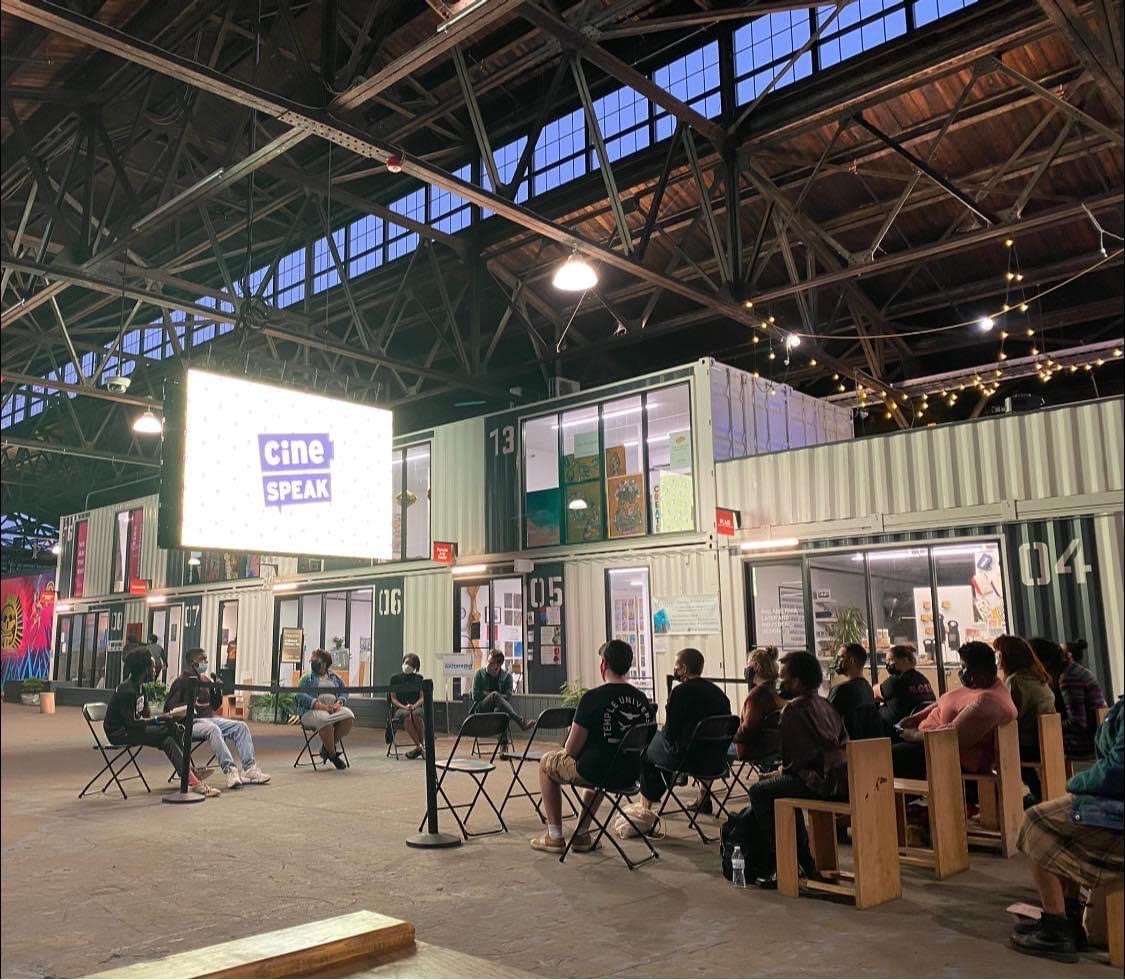
09 May cinéSPEAK Celebrates 10 Years of Cultivating the Independent Film Community in Philadelphia
BY EMILY NEIL
The story of cinéSPEAK can be told in terms of its linear history: it was founded in Philadelphia in 2013 by Sarah Mueller, and has grown over the past 10 years to reach more than 10,000 audience members, screening nearly 200 films throughout the city, sparking conversations, and supporting independent filmmakers.
But the organization’s journey can perhaps be more aptly communicated in moments and memories: a Philly filmmaker who is paid to screen her film for the first time ever, and is able to watch it with her friends and family at Cherry Street Pier; the Ethiopian-American community in West Philadelphia coming together for a screening and conversation about their experiences, as portrayed by two Ethiopian-American filmmakers; two friends attending a screening in Clark Park and walking home having conversations about the ways in which colonialist narratives have too often sought to divide communities of color; more than 200 people gathering for a multicultural, multimedia screening of Shake the Dust, a film about the international power of hip hop, complete with breakdancers, multilingual emcees, and live graffiti painting at a warehouse in Brewerytown.
Its impact has extended throughout the city, creating a network of people who have shared in what is now, in the age of streaming, a rare occurrence: watching film in community, in conversation, in dialogue with others.
Sarah Mueller, Founder and Executive Director of cinéSPEAK, said the moments that “aren’t things that you can quantify” are what represent the core of cinéSPEAK’s mission over its past 10 years of existence—and the intangible community responses are what keep it going.
“Just from knowing the stories and people we meet, and the people keep coming back, and thank us for programming these films, it’s meaningful,” she said.
“It’s a moment that you really have to be there to experience. And that’s the energy that founded cinéSPEAK…It’s been really integral to the work we’ve done creating these intimate moments or these parties around these films to really give them the attention they deserve. Independent film especially takes a lot of hands and a lot of money and a lot of time. We feel that these films are worthy of being screened in a way that celebrates them and honors the labor that went into their making and the importance of the stories they’re telling,” Mueller said.

‘Using film to have a progressive conversation’
It was 2013. Streaming was starting to gain ground, and video stores were closing. As Mueller recalled, there was talk of whether or not movie theaters were dying, a question that has resurfaced since the COVID-19 pandemic started in 2020.
Having been in Philadelphia since starting her studies in film and video production at University of the Arts in 2002 and graduating from the undergraduate program in 2006, Mueller developed a strong network of experiences and connections in the Philadelphia independent filmmaking community. She worked at TLA Video while attending UArts, which she said served as an “alt film education.” She went to innumerable events at the Prince Theater and the Philadelphia Museum of Art Members Film Club (both of which either don’t exist or have since shifted their focus on independent cinema). In summer of 2006, while working as an Americorps volunteer at a community center at Kensington & Lehigh, she assisted Scribe Video Center in putting on one of their Street Movies! screenings. Through that experience, a fire was lit, and Mueller realized that bringing people together over indie film was a newfound passion.
She also realized that there was a real need for more screenings by local filmmakers and for independent films that missed Philadelphia on the international circuit.
cinéSPEAK was born out of wanting to fill in the gaps between the city’s many film festivals, to ensure that there was continued programming throughout the year and Philadelphians didn’t have to go to New York City or elsewhere to view the best and latest in independent cinema.
With borrowed equipment, an amp bought with scrounge-together funds, and a van full of friends and volunteers, Mueller put on the first cinéSPEAK screening in October 2013 at the now defunct batting cages/event space, Everybody Hits.
Mueller said it was all about “creating these cool moments around film” that weren’t limited to the screen; the events included food and drink, live music or performances, DJs, and conversations.
It’s the kind of film viewing experience that people “can’t get from Netflix, sitting in front of their screen,” as Mueller puts it.
Rob Buscher, a co-founder of cinéSPEAK who worked with Mueller in the early years of the organization and now serves as the associate director of organizational culture at Japan America Society of Greater Philadelphia, said that from the start he was drawn to Mueller’s vision and the mission of cinéSPEAK. As a Japanese film expert, he was working at the Greater Philadelphia Film Office when he connected with Mueller.
Both Buscher and Mueller were “interested in using film to have a progressive conversation.” For Buscher, those conversations are made possible in society by the power of film, especially as it’s exhibited and curated by organizations like cinéSPEAK.
“The film medium, unlike any other medium, really allows the audience to see the world through the eyes of the filmmaker. And it’s an incredibly collaborative art form. So there’s a lot of voices and perspectives that are included within that,” Buscher said.
That means that having more films screened that are made by and about communities of color or other marginalized communities is important.
“Having the opportunity to see the world through the eyes of those filmmakers allows audiences to empathize in ways that I think few other mediums can truly achieve,” he added.
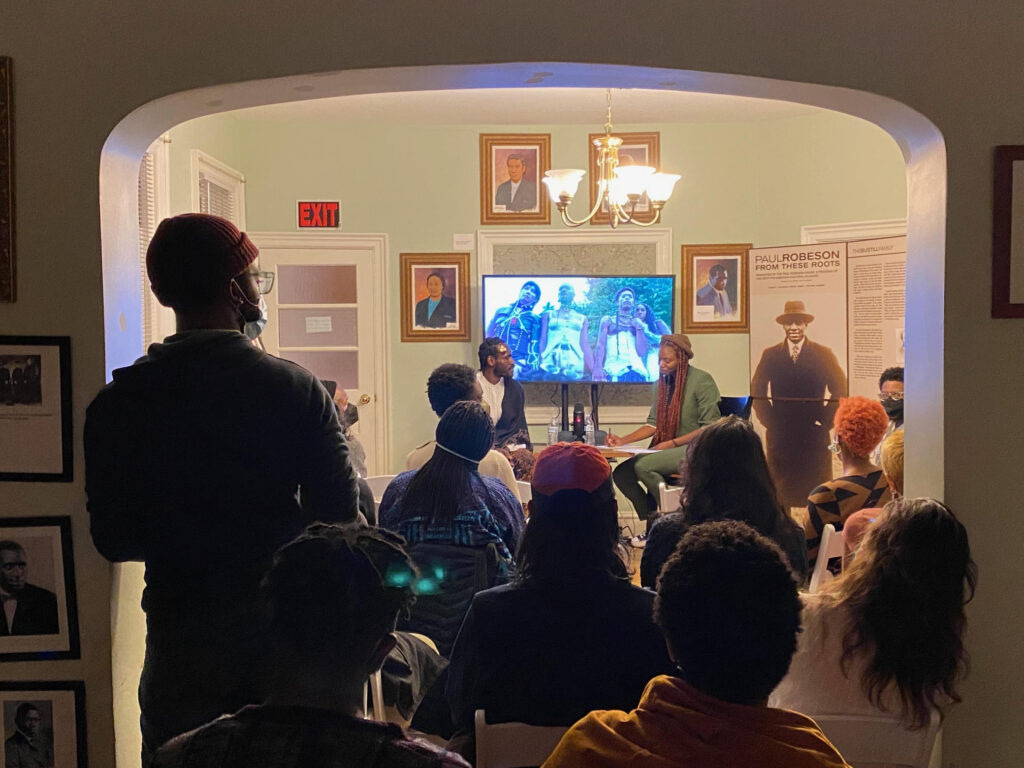
‘Building community and creating outlets’
70% of films screened by cinéSPEAK over the years have been directed by filmmakers of color; 60% were directed by women. Local Philadelphia filmmakers say cinéSPEAK’s commitment to screening films by filmmakers from communities of color, the LGBTQIA+ community, and other marginalized identities is an important piece of their impact, especially since many of those filmmakers are also local to Philadelphia.
Vernon Jordan, III is the assistant director of programs at cinéSPEAK, as well as a filmmaker, writer, and poet from Philadelphia. He said that as a filmmaker himself, he witnesses the power of the community-centric screenings cinéSPEAK hosts.
“I think, what’s special … and I’ll start from myself, as a filmmaker, is to actually be able to see the people in the audience. And to actually have a face-to-face, hand-to-hand, hug-to-hug kind of connection,” he said. “There’s just different energy when you’re in person. And it just changes the whole experience.”
Jordan recalled a screening of Mississippi Masala that was held outdoors summer of 2022, and said that as he stood watching the crowd, he realized that people who didn’t know each other beforehand were talking amongst themselves, and as the audience laughed, he found himself laughing and having a new emotional experience watching the film in community.
“It does bring me joy to be able to foster that experience for other filmmakers, even if they’re not there in the audience with us. Spiritually, I’m like, ‘Yes, this is why we make movies, we want to elicit those kinds of reactions and that kind of community,” he said.
For Philly-based filmmakers Stephanie Malson and Darien Woodard, Jordan and cinéSPEAK as a whole did foster that kind of experience for them, paying them for their films to screen at a program called On Love + Joy which ran at the Cherry Street Pier in September 2021.
Malson, whose short film Slowburn was screened at the event, said that it was “huge” because it was her first time screening a film she had made—much of her previous videography work has been for-hire for documentaries or nonprofits.
“Oftentimes I’m creating content for other people or supporting a larger project. I never really had a chance to tell my own stories or support my own voice in that way. So to get that opportunity after making this film especially during the earlier part of the pandemic, it was tremendous. I think for me that was the best way for my film to screen, because I always wanted my work to be seen by my community in a meaningful way, and for it to be paired with other love stories, especially stories made by local filmmakers, all of those elements was perfect for me,” Malson said.
“It’s rare for a Black woman filmmaker to have this opportunity. Our stories are not the ones that make it into these spaces oftentimes, and generally, we don’t even see Black women’s stories in the volume that we see other stories, stories told by other people,” she added.
Woodard agreed that being able to screen their film Dove at the program, shortly after graduating high school, was important to their future, as they continue to pursue filmmaking.
“I think cinéSPEAK’s role within the filmmaking community is…building community and creating outlets for other filmmakers, filmmakers of different calibers, especially to be in the same room, at the same time, showcasing their work,” Woodard said.
“Sometimes there can be hierarchies within the filmmaking community, and cinéSPEAK kind of does a really good job of just..having an open, accessible space for everybody to just come in, watch films. You can go to enjoy a film from a local filmmaker, you could go with the intention of networking with other filmmakers, [or] you could go with the intention of seeing your friends,” they added.
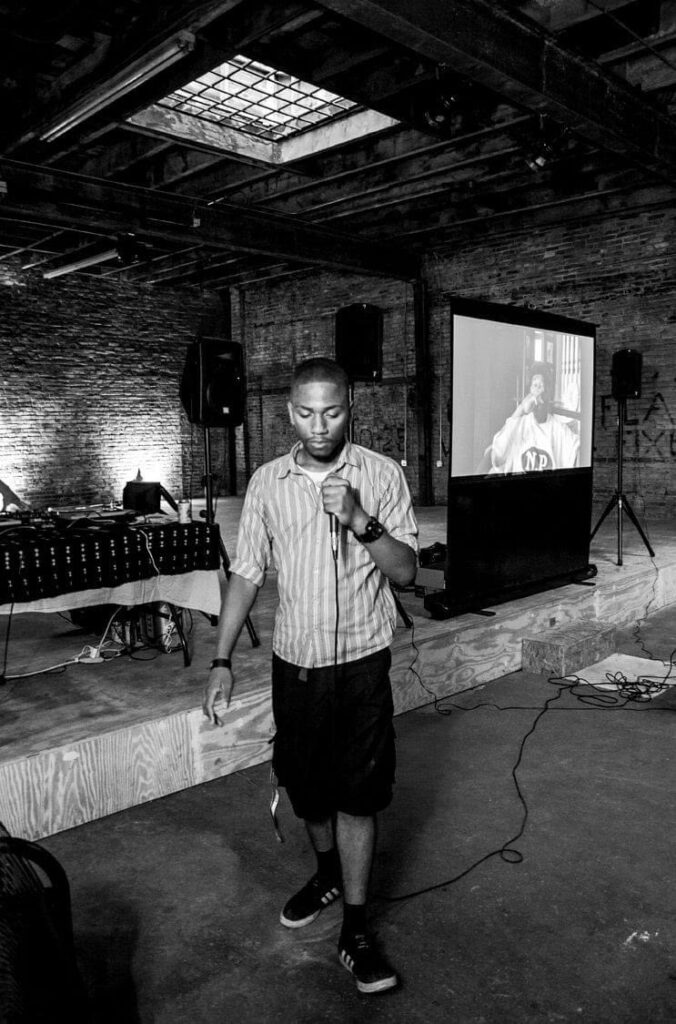
Creating networks, impacting communities
For Malson, the impact of cinéSPEAK extends beyond local filmmakers and enhances the city as a whole.
“If we didn’t have cinéSPEAK, I feel like Philly, particularly, would just be void in terms of what types of films we get to experience here. We don’t have to go to New York, we don’t have to even be online, we can have community and watch films together locally, and they’re really amazing stories that we rarely get to see in traditional spaces,” she said.
For Gabe Castro, a filmmaker, multimedia journalist, and member programming manager at PhillyCAM, cinéSPEAK has the ability to get a lot of different creative people in the same room.
“Philadelphia has a great filmmaking and creative space, and we definitely will often see the same faces in a lot of spaces, where, with cinéSPEAK, we get to see new faces and I really value that. It’s not just exclusively new faces, it’s this opportunity to connect the emerging creative scene with the already established creative scene and kind of bridge that gap and be able to make those connections and move careers forward, get advice, and have that mentoring opportunity as well,” she said.
Enni Aigbomian, communications and events manager at Independence Public Media Foundation, said that she is a fan of cinéSPEAK “both professionally and personally.” Even before she began working with cinéSpeak as one of the Foundation’s Community Voices grantees in her role at IPMF, she had already attended cinéSPEAK screenings in Clark Park in West Philly, and had loved the kinds of conversations the film events fostered.
She said that because of the ways in which cinéSPEAK collaborates with so many other organizations in the city, it plays a vital role in the Philadelphia media ecosystem.
“Our vision for filmmaking in Philadelphia is for Philadelphia to be a hub for independent, community-led filmmaking and we definitely see the importance of having cinéSPEAK continue to build these relationships, and these organizations also build these connections with cinéSPEAK because it all feeds into one another,” Aigbomian said.
Establishing Philadelphia as a destination for film lovers is one goal that Sarabella Rocha, production assistant at cinéSPEAK, says has been fulfilled. In her time so far at cinéSPEAK, she has talked to at least two audience members who traveled from out of state to be able to view the film that was being screened, and says that the partnerships cinéSPEAK has forged with the other local film festivals have also served to further amplify the work of everyone in the local independent filmmaking community.
“Putting together the community to support each other makes that difference to keep it all going,” Rocha said.
Mariam Dembele, a multimedia journalist and member of the editorial collective for cinéSPEAK Journal, agreed that the accessibility of cinéSPEAK and its goal to bring together filmmakers and community members is a powerful component of the legacy it’s built in the city in the past 10 years.
“One of the things that I just love about cinéSPEAK, both within the journal and within its programming, [is that] they like to highlight emerging artists and filmmakers, people who are a little bit newer to the film world or the social justice world, and they give them a platform. And so I feel like just that impact by itself is really huge, and specifically that oftentimes is Black, Brown, Queer, Nonbinary folks,” Dembele said.
This kind of ethos, Dembele said, extends to the inner workings of the organization—Mueller and the rest of the staff at cinéSPEAK are “incredible,” she said. Mueller, in particular, Dembele noted, has “such a dedication to this work, such an incredible commitment that she brings into everything she does.”
The cinéSPEAK team itself, Dembele said, has “a commitment to equity and a commitment to who they are providing this platform to, making sure everyone is cared for, properly paid. It’s not only what you do, it’s how you do it.”

cinéSPEAK’s next chapter
The next step on the horizon, Mueller said, is to find a permanent home for cinéSPEAK–a place to host screenings regularly and serve not only as a central hub for the work that the organization does, but also as a year-round gathering place for moving image artists, cultural producers, film festivals, and others seeking a base to regularly commune over independent film.
Though the details are not finalized, cinéSPEAK aims to have a permanent location in place at some point in 2023. Audiences can expect to learn more over the coming months.
Jordan said that in addition to having a permanent space for cinéSPEAK programming, he hopes that the organization is also able to grow its ability to financially support artists and also help filmmakers navigate processes like submitting to film festivals and more. He also hopes to build a bigger network of artists so that local actors, musicians, and others are able to connect with filmmakers and directors in the area.
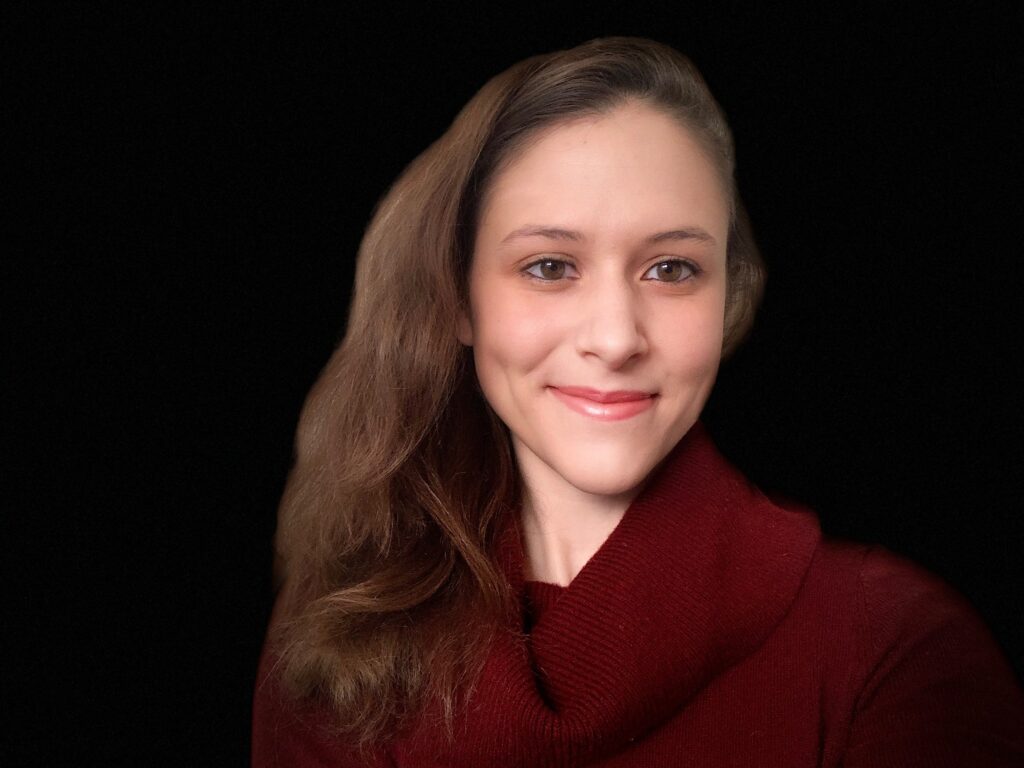
Emily Neil is a freelance journalist based in Philadelphia, PA.
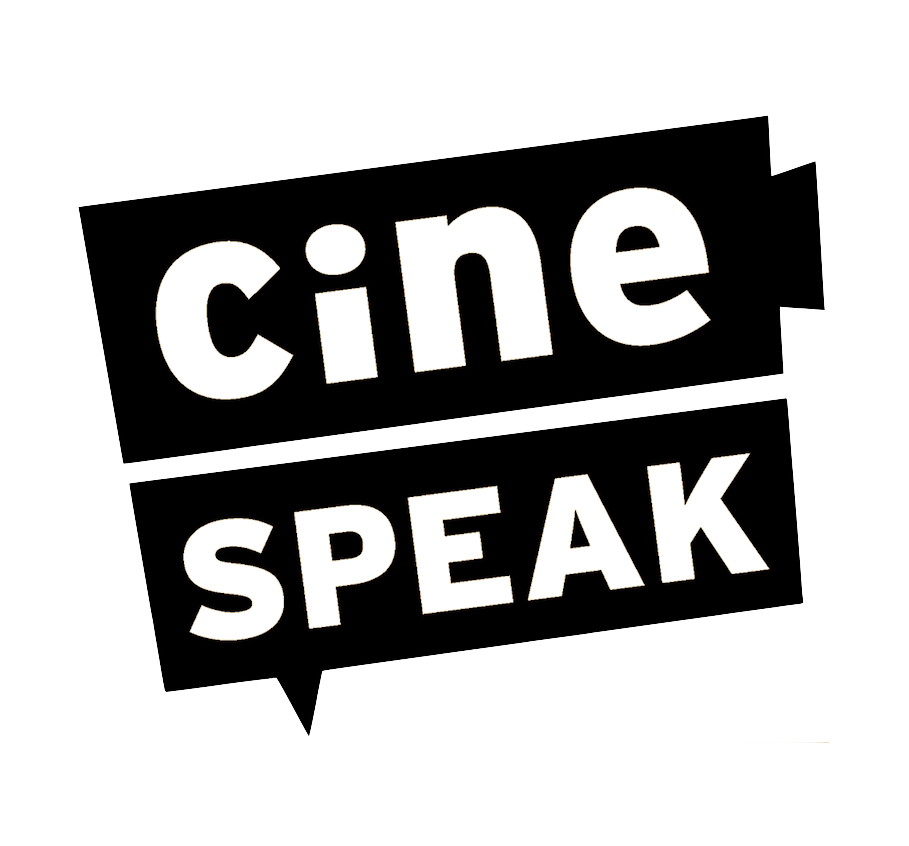
Sorry, the comment form is closed at this time.